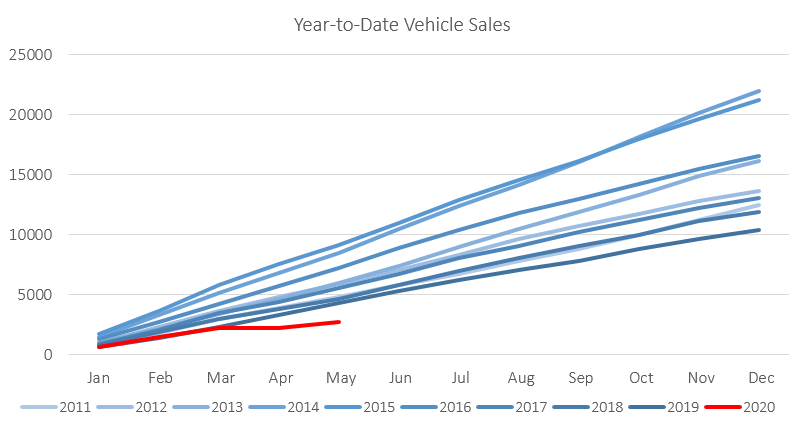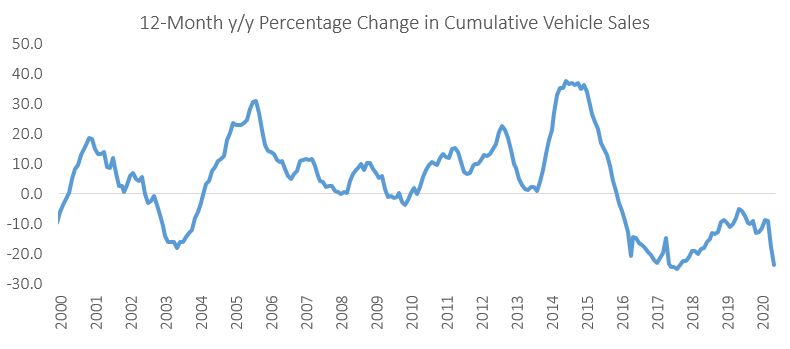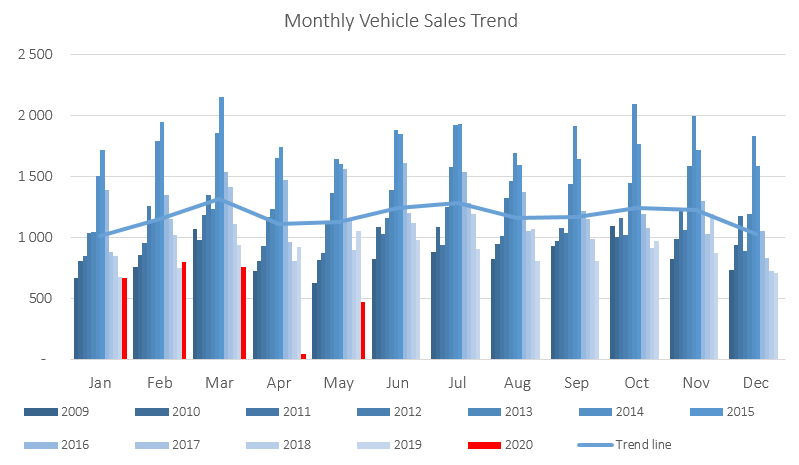
The Namibian annual inflation rate ticked up slightly to 2.1% in May, following the 1.6% y/y increase in prices recorded in April. Prices in the overall NCPI basket increased by 0.4% m/m. Namibian inflation thus remained at historically low levels in May. On a year-on-year basis, overall prices in eight of the twelve basket categories rose at a quicker rate in May than in April, with two categories recording slower rates of inflation and two categories recording increases consistent with the prior month. Prices for goods increased by 2.3% y/y while prices for services rose by 1.7% y/y.

The food & non-alcoholic beverages category was the largest contributor to annual inflation in May, accounting for 0.83 percentage points of the total 2.1% annual inflation rate. The category recorded price increases of 0.1% m/m and 4.7% y/y. Prices in all thirteen sub-categories recorded increases on a year-on-year basis, with the largest increases being observed in the prices of fruits, vegetables and coffee, tea and cocoa.

The miscellaneous goods & services basket item was the second largest contributor to annual inflation, accounting for 0.32 percentage points of the total 2.1% annual inflation figure. The fact that the sixth largest basket item was one of the largest contributors to the annual inflation figure in May illustrates how low inflationary pressure is at the moment. The prices of miscellaneous goods & services remained steady on a month-on-month basis, but rose 6.1% y/y. The only subcategory which showed an increase on a month-on-month basis was personal effects, which increased by 0.7% m/m. Prices in all other subcategories remained steady during the month, except for the personal care subcategory, which recorded price decreases of 0.4% m/m.
The education basket recorded inflation of 7.0% y/y, with the cost of pre-primary education growing at a rate of 5.6% y/y. Primary and secondary education recorded price increases of 9.3% y/y, while tertiary education prices rose by 5.3%. None of the three subcategories printed price increases on a month-on-month basis.

The NSA’s regional CPI data shows that on a monthly basis prices increased by 0.3% in the northern zone, 0.4% in the central zone, and 0.2% in the mixed eastern, southern and western zone. On an annual basis the northern region recorded the highest inflation rate at 2.3% y/y in May, while both the central zone 2 and mixed zone 3 recording inflation rates of 1.9% y/y.

Despite a slight uptick in the inflation rate in May to 2.1% y/y, inflationary pressure remains extremely subdued. Despite the lockdown restrictions being lifted for most industries and regions, many businesses and consumers remain under severe financial pressure and are simply not able to afford higher prices for goods and services.
The low inflationary pressure does at least provide the Bank of Namibia (BoN) some leeway to follow the SARB by cutting interest rates at its June MPC meeting in an attempt to resuscitate economic growth. While this should bring some further relief to heavily indebted businesses and consumers, it is unlikely that commercial banks will be spurred on to grow their loan books as risks remain. Monetary policy alone will thus not be enough to drive meaningful economic growth, and as a result inflation is expected to remain low in the short- to medium term. IJG’s inflation model forecasts an average inflation rate of 1.9% y/y in 2020 and 3.7% y/y in 2021.












